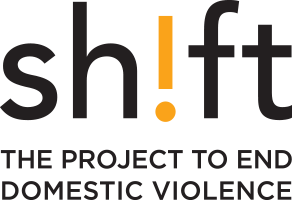The ConnectED Parents Healthy Social Environments Catalogue is a resource designed to help community leaders and practitioners involved in the ConnectED Parents project to create a healthy social environment for parents. This catalogue offers practical ideas and strategies that are easy to implement, regardless of someone’s level of experience or knowledge.
Overview of the ConnectED Parents Healthy Social Environments Catalogue
What is a healthy social environment?
A social environment is the culture that is collectively shaped by the group members in a particular setting, like a parent support group or community association. The social environment is influenced by the relationships, everyday behaviours, expectations, how engagement in the setting is designed and organized, and the physical setup of a setting. Our research found six key dimensions that create and sustain a healthy social environment:
- 1. Builds strong relationships:This dimension emphasizes the importance of building strong and positive connections among parents, community leaders, and practitioners.
When settings have strong relationships, parents feel like they belong, connect with others, and receive recognition and affirmation.
- 2. Support for personal development:This dimension recognizes the value of helping parents grow and feel empowered. This includes providing resources, workshops, and opportunities for learning and skill-building.
When settings support personal development, parents feel that personal wellness is a priority and there are opportunities to build new skills.
- 3. Co-created and flexible:A healthy social environment involves everyone’s active participation and collaboration. It should be adaptable to diverse needs and preferences of parents, allowing for shared decision-making and flexibility.
In these settings, parents feel a sense of shared responsibility and ownership, with different options for participation, and transparent decision-making.
- 4. Hope-oriented:This dimension promotes a positive outlook, resilience, and a belief in parents’ abilities. Community leaders and practitioners can create an environment that inspires and motivates parents to overcome challenges and pursue new opportunities.
In these settings, parents feel a sense of possibility, joy, and creativity.
- 5. Promotes justice, equity, and dignity:A healthy social environment prioritizes fairness, inclusivity, and respect for all parents, regardless of their backgrounds or circumstances. It actively works towards eliminating discrimination and creates equitable opportunities for everyone.
In these settings, power is named and shared, and systemic barriers are not blamed on individuals.
- 5. Psychologically and physically safe:A healthy social environment takes care of parents’ emotional and physical well-being. It provides a safe and secure space, both online and offline, where parents can express themselves freely and engage with others without fear.
In these settings, parents trust that their physical needs are met, feel comfortable being honest, and have the ability to engage in healthy disagreements.
The ConnectED Parents Healthy Social Environments Catalogue offers practical approaches that community leaders and practitioners can implement to cultivate these healthy environment dimensions in their settings.
How can community leaders and practitioners use this catalogue?
In ConnectED Parents, community leaders and practitioners that oversee parent settings play a vital role in creating a healthy social environment, and the ConnectED Parents Healthy Social Environment Catalogue is here to support them. Designed to complement the training and coaching sessions that community leaders and practitioners have already received, this catalogue offers practical and ready-to-use approaches that leaders can implement right away.
The strategies in the catalogue are grouped into three types:
Important notes about this catalogue:
- Each strategy in the catalogue strengthens at least one of the dimensions of a healthy social environment. However, there is often overlap, meaning that many approaches can contribute to multiple dimensions. For example, a strategy that promotes trust and mutual support among parents also fosters psychological safety and supports personal development.
- This catalogue is meant to be flexible, allowing leaders to adapt and tailor the strategies to their unique settings and the needs of the parents they work with.
- We will continue to refine and add strategies to this catalogue. This is our thinking to date.
By using the ConnectED Parents Healthy Social Environments Catalogue, community leaders and practitioners can take immediate steps towards creating a healthy social environment for parents, ultimately building the conditions for parents to support healthy youth relationships.
Copyright notice: These materials are developed for the ConnectED Parents Project and can be used use for non-commercial educational purposes only, as long as the original work is properly acknowledged. If you would like to use any part of the framework or other resources for commercial purposes or publication, please email Lianne Lee at lilee@ucalgary.ca for permission.


